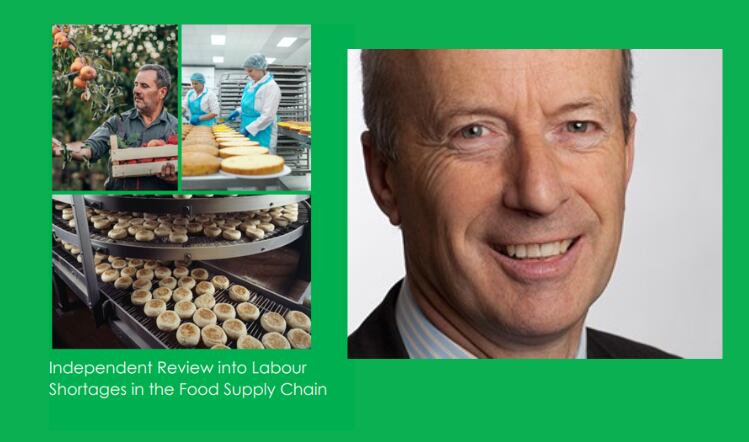In a discussion examining the future of the agri-food sector, former secretary of state for the environment, food and rural affairs RT Hon George Eustice picked flaws with the current government’s approach to immigration and workers.
The topic was raised as interviewer Rory O’Donnell, previously a lead negotiator for the UK on agricultural policy and now a partner at Penta, asked Eustice what he believed should count as a skilled worker.
Is our focus on higher skills to our detriment?
The MP explained that although he campaigned to leave the EU, he acknowledged that temporary visas would be needed if Brexit was to happen. However, he also claimed that the notion of a skilled-based scheme emerged later, during Teresa May’s run.
“There’s this terrible phrase used – we want the brightest and the best,” Eustice said, as he suggested that the idea the UK would prefer immigrant lawyers over factory workers could leave those in these latter roles feeling dejected.
“People who do the hard graft are not valued in the same way,” he contended.
“I would prefer to have an immigration policy based on needs,” he added, suggesting that a policy could be set-up whereby visas for five years could be issued for those who plug the skills gap. “I think that would be better than the obsession over ['higher'] skills.”
“We are allowing people [in] where there is no need at all and that is exacerbating inflation. A third of inflation can be put down to the labour shortage and we ought to be addressing that labour need.
“There are those who say, in essence, that we can’t stop illegal immigrants, so let’s have an even harder clamp down on legal migrants. I think that’s wrong.
“If people are going to block access to labour, they should stop complaining about food prices.”
However, although the Skilled Worker scheme was initially intended for ‘medium or highly skilled’ roles, a system which Eustice criticises, the UK Government has recently added additional roles to the eligibility list for sponsorship. It also operates a shortage occupation list, which sees sponsorship for roles on a temporary basis where there are significant gaps.
Yet, according to The Migration Observatory at the University of Oxford, in 2020, there were just 28% of ‘low-skill’ non-UK workers living in London (where the Skilled Worker route has dominated) compared to 40% ‘high-skilled’.
London employers were said to have used skilled work visas predominately for finance positions, as well as professional or scientific activities, IT, and – particularly since 2016 – jobs in health. Outside of London, healthcare dominates.
Are we using robots to fulfil the wrong job roles?
O’Donnell also questioned whether technology could help alleviate shortages in the agri-food sector, but Eustice was clear that robotics and AI was not yet at a point where it could mimic human dexterity sufficiently.
“I co-chaired the automation review and spent a lot of time considering these dilemmas and robotic companies. Robots find it hardest to emulate human dexterous skills over cognitive. It’s quite easy to train a robot to master chess, but not to catch a cricket ball.”
He explained that in order to catch a ball, it required extreme effort in calculating distance and speed etc., and manual skills such as fruit picking, can be likened to this activity and therefore, more difficult to copy.
He went onto say that we are defining roles for robotics through the “prism of human social prejudice”. In other words, we are trying to design robots to take on roles which we consider less desirable over what they may be better for, i.e. cognitive.
Elsewhere, John Shropshire’s OBE’s Independent Review into Labour Shortages in the Food Supply Chain has been met with cautious optimism by the food and drink industry. Among the 10 recommendations outlined in the report is an investment into domestic workers and the incentivisation of automation within the sector.





